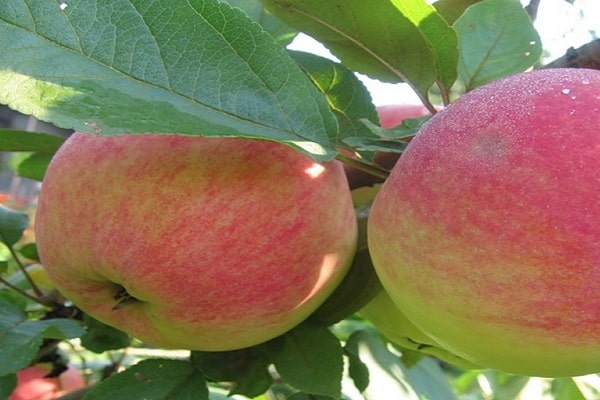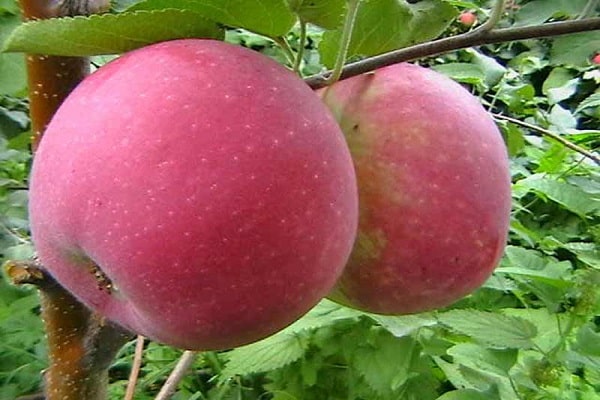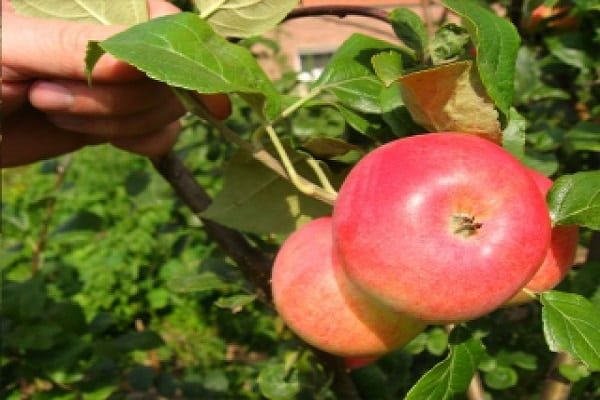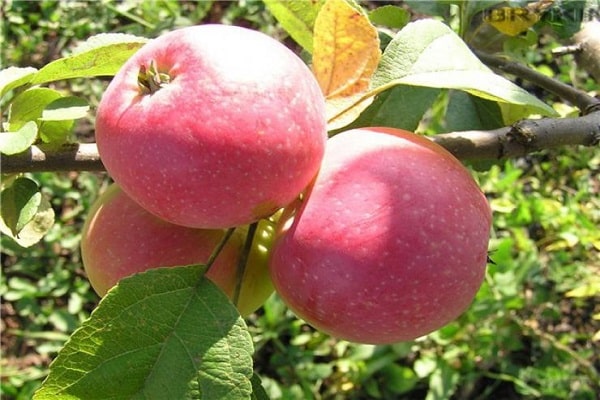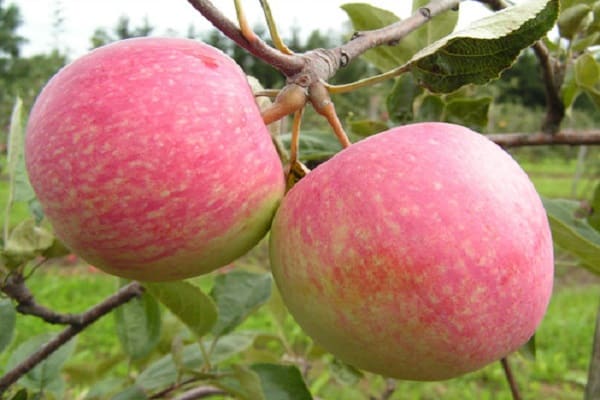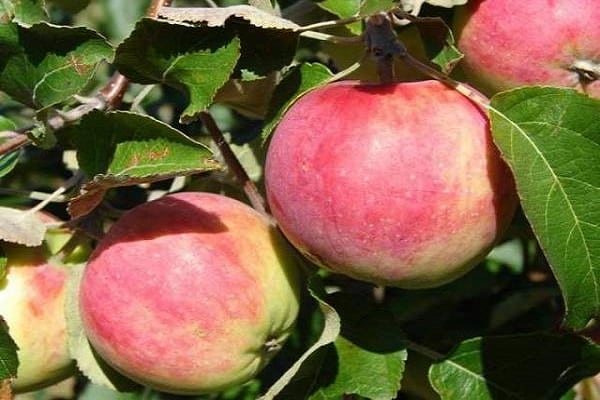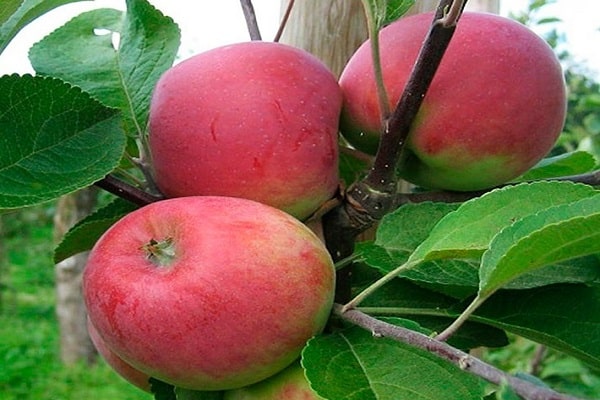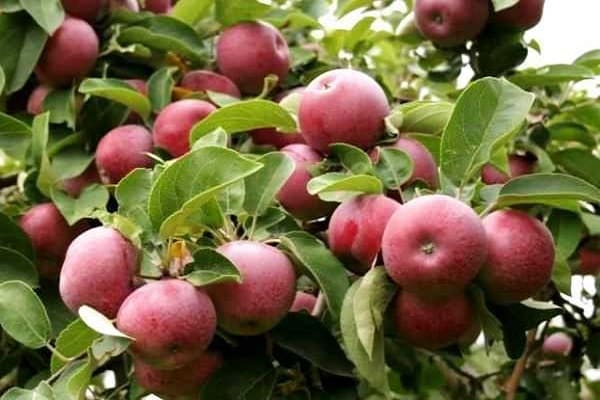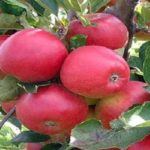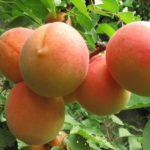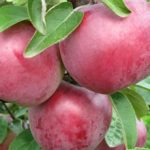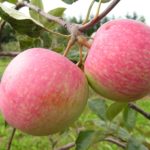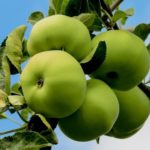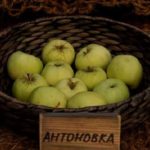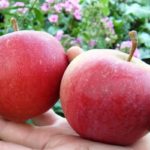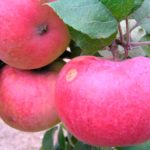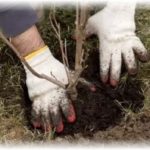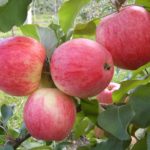In the Siberian climate, not all fruits and berries are able to ripen, so breeders are tirelessly working to develop new varieties adapted specifically for this region. The Tolunay apple tree is especially popular among both amateur gardeners and professionals.
Description of the variety
The description of the Tolunai apple tree variety suggests that the tree grows small and does not cause discomfort to other garden crops. The crown is not prone to thickening, but needs periodic pruning. Its shape is round, the branches are located at right angles to the main trunk, directed upwards. The bark is brown in color.
The frost-resistant Tolunai apple tree variety has rich green leaves. Their shape is slightly rounded, with small notches along the edges.
Description of fruits
The Tolunai apple tree variety has several fruits on the trunk. The weight of one of them does not exceed 110 grams, but there were specimens weighing 130 grams. The fruit is truncated-conical in shape with mild ribbing. At the stage of technical ripeness, apples acquire a golden-yellow color with beautiful dark red or burgundy stripes.
The pulp of Tolunay apples is very juicy and tender, medium in density, colored in a delicate cream color. The taste is excellent. The fruits have a pleasant sweet and sour taste and a rich classic aroma. The seed pod is located in the center of the fruit. At the stage of technical ripeness, Tolunai apple seeds are brown.
The fruits contain:
- vitamin C - 11 mg;
- sugar - 13%;
- dry matter - 16.5%;
- acidity - 0.4%.
Professional tasters rated the taste of Tolunay apples at 4.8 points.
Fruiting
The Tolunai apple tree belongs to a mixed type of fruiting. You can enjoy the first harvest 4-5 years after planting the young seedling. In the first two years, up to 6 tons of apples with high marketability are harvested from one hectare. Over time, yields increase. Within 7-9 years after planting, each apple tree is capable of producing 25 kg of high-quality harvest. Fruiting in Tolunay is regular and the yield is high.
If an apple tree tries to start bearing fruit in the first year after planting, then all the inflorescences must be cut off. This will help the seedling to take root well and become stronger.
Tolunay's fruits ripen at the end of summer or the very beginning of autumn. That is why the variety is considered late summer. The apple tree is not prone to falling. For storing for long-term storage, only whole fruits without mechanical damage, visible deformations and signs of spoilage or disease are selected.
Tolunay has medium keeping quality. After 3 months, apples lose not only their presentable presentation, but also their taste. The optimal shelf life is 1.5 months. The fruits are great for eating as a whole, but are not suitable for making dried fruits. But the harvested crop can be used for all types of processing:
- juicing;
- cooking compote or jelly;
- making apple wine;
- cooking jam.
Due to the fact that Tolunay fruits contain a lot of pectin, they are widely used for making jelly, jam, mousse or marmalade.
Variety resistance to diseases
Tolunay exhibits increased resistance to major diseases and is little exposed to pests. However, under unfavorable weather conditions, the crop may suffer. If the weather is rainy and cool outside, then in order to prevent fungal diseases, it is recommended to spray the plant with Bordeaux mixture.
To prevent pests from encroaching on the apple tree, the trunk must be whitened with quicklime in a timely manner.
The Tolunai apple tree variety does not tolerate drafts, temperature fluctuations and long winters. But the plant is fastidious in caring for it and takes root well after transplantation. The apple tree exhibits increased resistance to moniliosis, and only the foliage is affected by scab.
To ensure that Tolunay is not exposed to pathogens and bears fruit well, it must be fed steadily and regularly. Before fruiting begins, the plant requires nitrogen. When planting an apple tree, superphosphate, any humus and peat are added to the hole. Be sure to do annual sanitary pruning of the tree.
Pollination
An apple tree of a frost-resistant variety called Tolunay has open pollination. Planting and caring for this plant does not cause any difficulties. The survival rate of seedlings is good.
Winter hardiness
Tolunay apple tree varieties can withstand significant temperature drops in winter. The tree is rightfully considered frost-resistant, but for the harsh Siberian climate this indicator received only an average score. If the air temperature drops below -40 °C, then the apple tree's flower buds, wood and bark freeze.

